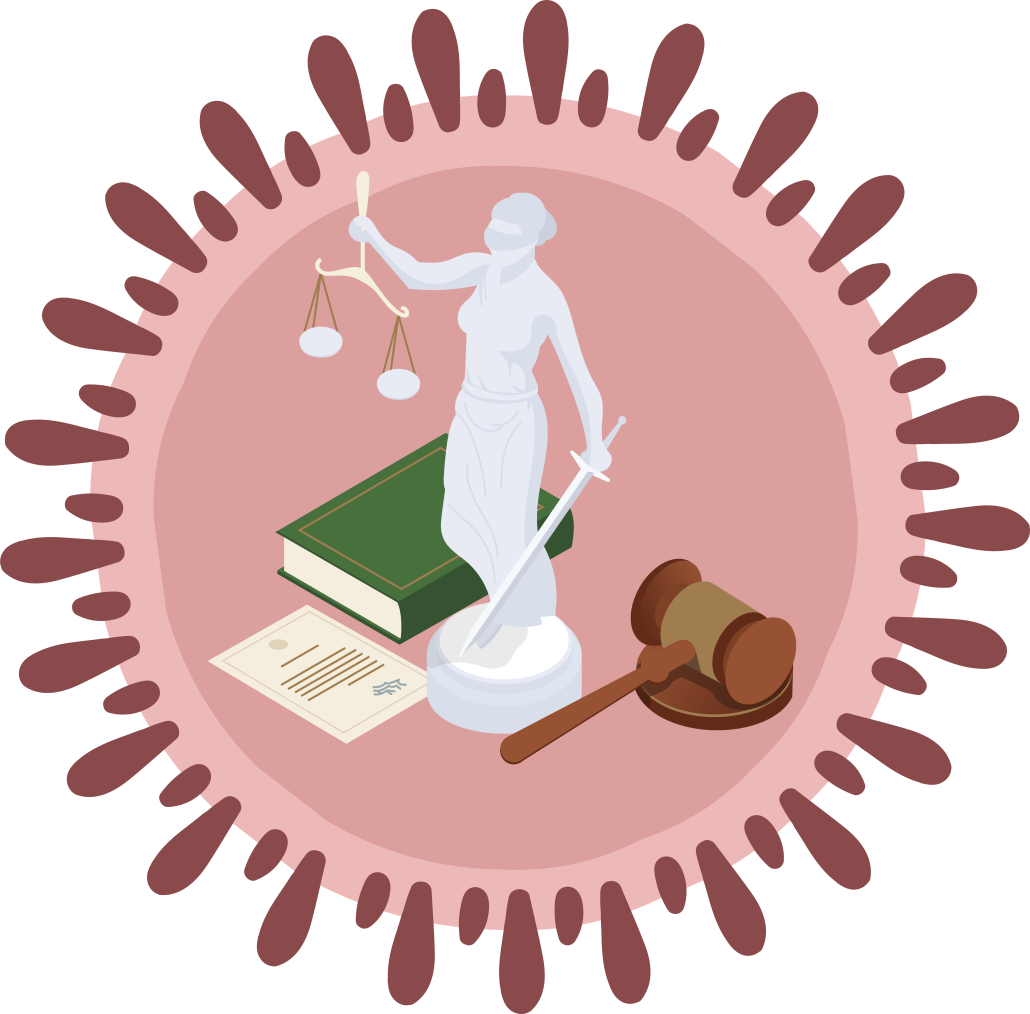Law & Disorder: Our right to a speedy trial stands, even during a pandemic
Our right to a speedy trial is one of the most important rights protected by the Sixth Amendment of the United States Constitution. The amendment prevents indefinitely holding criminal defendants for unproven accusations, guarantees they receive a fair trial, ensures the effective utilization of resources and preserves the interest of the public, which includes the crime’s victims and witnesses. However, despite the 233 years since our Constitution’s ratification, we still don’t truly have the right to a speedy trial.
In Barker v. Wingo (1972), the Supreme Court unanimously upheld the right to a speedy trial — it cannot be established by rigid rules but rather on an ad hoc, or impromptu, basis between the prosecution and defendant’s conduct.
I’d like to specifically highlight Justice Byron R. White’s concurring opinion in this case. While describing a speedy trial’s necessity in preventing unconstitutional infringement on the defendant’s liberty, he argued that case delays interfere with one’s life even if they are on bail – considering factors such as employment disruption, mental health deterioration and familial disruptions. Most importantly, he stated, “Unreasonable delay in run-of-the-mill criminal cases cannot be justified by simply asserting that the public resources provided by the State’s criminal-justice system are limited and that each case must await its turn.”
The state cannot compromise our right to a speedy trial because of “limited resources” and backlogs. We must pressure the state to resolve these cases and get people the trial dates they deserve.
When it comes to backlogs in cases, Black and Indigenous communities and communities of color are disproportionately affected. Not only do these people account for more cases and receive longer sentences for the same misdemeanors, they are also more likely to spend time in pretrial confinement with higher bail amounts. With the staggering backlog of cases, the racial disparity within our justice system exponentially grows and these individuals remain guilty until proven innocent.
More than three years after Torrance police officers killed her son in January 2018, Charmane Henderson, a Black mother from Hawthorne, Calif., is still waiting for her trial date. Diagnosed with stage two ovarian cancer, she is concerned that she may not even be able to testify as her health declines and the trial delay extends.
Officers killed Henderson’s son in 2018, two years before the start of the pandemic in the U.S. While the pandemic dramatically worsened the backlog of cases, it typically takes some California courts over 500 days to set a trial date. According to Lex Machina’s state court data collected between 2016 and 2021, “the median time to trial in Los Angeles County Superior Court was 467 days.”
It’s impossible to ignore the pandemic’s impact on our justice system. But, as we recover and fully reopen our malls, schools and amusement parks, why are courtrooms still in limbo? According to CalMatters, 44,241 people are incarcerated without being convicted of a crime with most hearings still virtual or delayed. This excludes all the crime victims waiting for a trial date. Additionally, no one truly knows how many of these backlog cases resulted from the pandemic or carried over from before coronavirus.
One would expect a greater push to solve the backlog as we recover from the pandemic and resources become more available. Staff shortages and unforeseen — otherwise unnecessary — budget reductions, however, have made this practically impossible. Even when a case makes it to trial, people still wait several months to receive money rewards from civil litigations, as reported by San Bernardino County Court officials.
“Without a substantial change, we are facing the very real possibility that it could take more than three years before some violent crimes make their way to trial and even longer for homicide cases,” said Mecklenburg County District Attorney Spencer Merriweather in a 2020 news release.
Over three years. Ridiculous.
Instead of a greater push to send cases to trials, more and more courts are dropping cases. Meg Garvin, executive director of the National Crime Victim Law Institute at Lewis and Clark Law School, warns that dropping cases sends the message that these cases and the people involved do not matter — and she’s right. For old cases of misdemeanors without any victims, by all means, drop them and reallocate the resources for lawsuits such as Henderson’s. However, a lack of resources does not excuse unresolved cases.
Denial and ignorance will not solve the problem. Any further case delays mean people are struggling against unproven criminal charges, stuck fighting for child support or are victims simply wanting closure and rectification. Waiting in this void of injustice, these people aren’t asking for much — they just want the justice they deserve.
Helen Nguyen is a junior writing about law and social issues. Her column, “Law & Disorder,” runs every other Monday.


